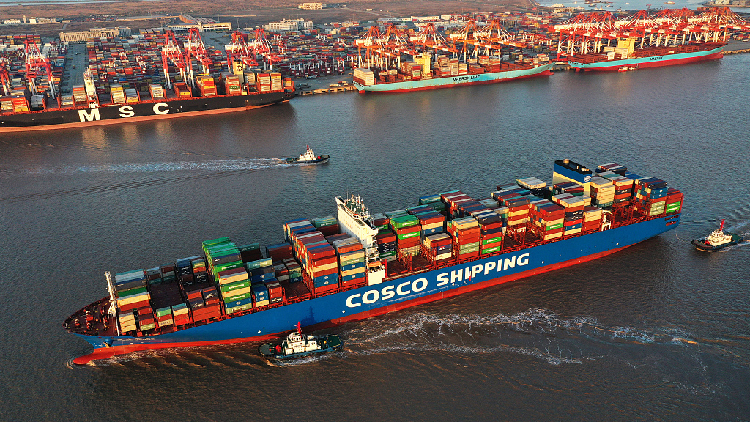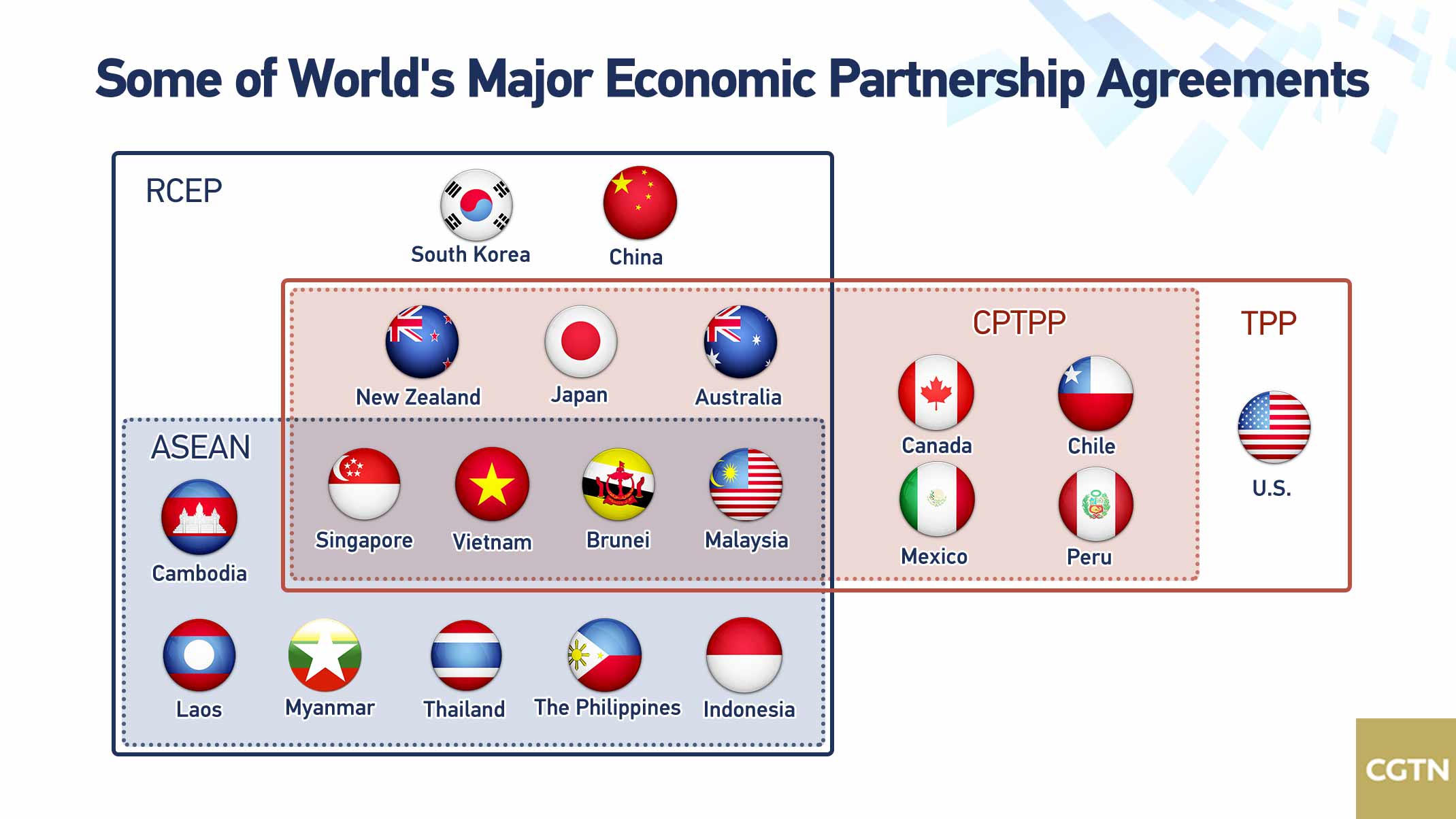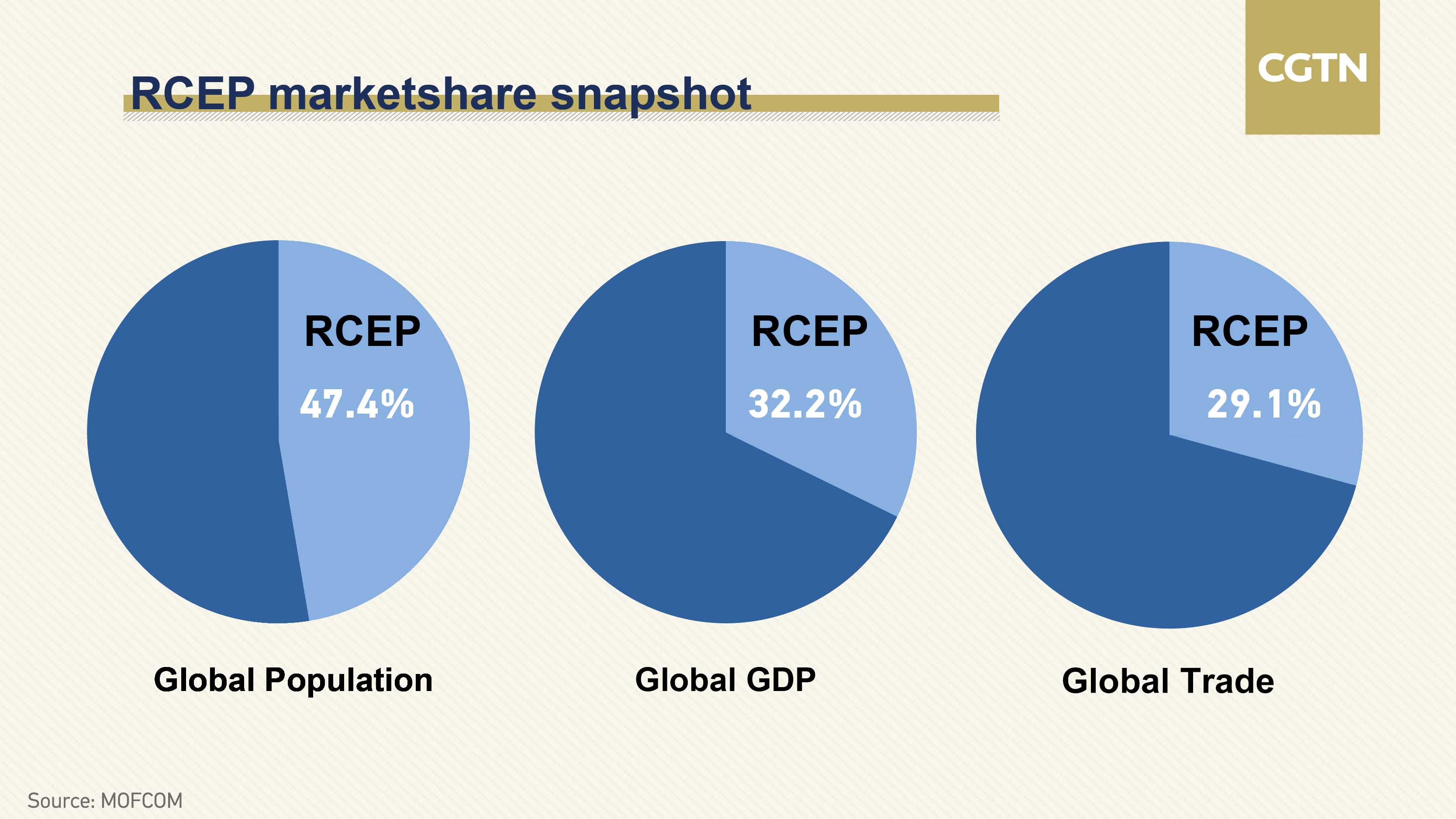03:36

The Regional Comprehensive Economic Partnership (RCEP), the world's largest free trade agreement, officially came into force on Saturday.
The agreement came into effect with a first batch of 10 countries, including six of the Association of Southeast Asian Nations (ASEAN) members--Brunei, Cambodia, Laos, Singapore, Thailand and Vietnam, together with China, Japan, New Zealand and Australia. The agreement will enter into force on February 1 for South Korea, according to a statement by the ASEAN Secretariat on Saturday.

Once in effect, the RCEP is expected to eventually eliminate tariffs on as much as 90 percent of goods traded between its signatories, expand market access for investment, harmonize rules and regulations, and strengthen the supply chains within the massive free trade zone.
China is well-prepared for implementing the RCEP agreement, spokesperson for the Ministry of Commerce Gao Feng said on December 23, 2021. The core of the agreement lies in its implementation, Gao told a press briefing.
China is ready to fulfill a total of 701 binding obligations under the agreement, said vice-minister of commerce Ren Hongbin at a press briefing on Thursday. So far, the General Administration of Customs of China has completed preparations for the implementation of 174 items alone or jointly, accounting for 24.8 percent of the 701 binding obligations, chinanews.com reported on Wednesday.
The RCEP covers a market of 2.2 billion people with a combined economic size of $26.2 trillion, or 30 percent of the world's GDP.

A total of 15 Asia-Pacific countries signed the RCEP agreement in November 2020, comprising 10 ASEAN members and five of their largest trading partners: China, Japan, South Korea, Australia and New Zealand. India opted out of the agreement.
According to the agreement, the implementation of the RCEP had to begin 60 days after ratification by at least six ASEAN and at least three non-ASEAN countries, which was achieved before November 2, 2021.
Read more: Australia, New Zealand ratify RCEP, world's largest trade deal
The expeditious ratification process by signatory states "is a true reflection of our strong commitment to a fair and open multilateral trading system for the benefit of the people in the region and the world," said ASEAN Secretary-General Dato Lim Jock Hoi.
Lim said the RCEP reinforces regional economic integration by expanding common accumulative rules of origin, simplified customs procedures, trade facilitation, and coherent trade rules that provide greater transparency, fairness, and predictability for businesses.
"All these will translate into a significant reduction of trade costs and processing time for ASEAN businesses, especially micro, small and medium enterprises," he said.
The mega free trade agreement has been applauded by the Asia-Pacific region as an important step toward deeper regional integration and a renewed worldwide momentum for free trade and multilateralism at a time of multiple global uncertainties.
The trade pact has also been hailed for its critical role in building economic resilience amid COVID-19 and improving peoples' livelihood.
Le Quang Lan, the ASEAN Secretariat's director for market integration, said "post-pandemic economic recovery requires more trade and investment, not less. This is where RCEP is expected to contribute."
Read more: Leading Chinese economist says the U.S. a challenge to RCEP
(With input from Xinhua)
(CGTN's Wang Hui contributed to the story)

